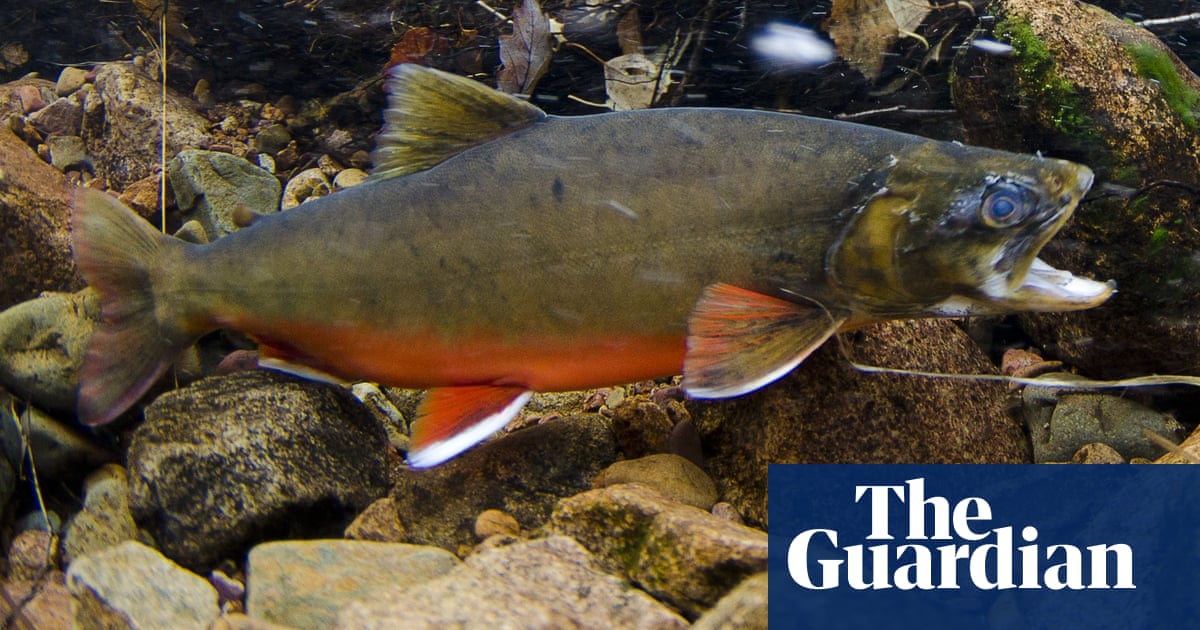
The next government must give Windermere greater protection from sewage pollution, campaigners including the naturalist Chris Packham and the comedian Paul Whitehouse have urged in an open letter to all party leaders.
The campaign group Save Windermere, which organised the letter, says the lake has huge ecological significance, is home to rare and protected species and brings in about £750m to the economy. But the signatories, who include the Wildlife Trust, the countryside charity the CPRE and WildFish, say it is being degraded by pollution.
As party leaders prepare to publish their manifestos this week, Matt Staniek, the founder of Save Windermere, said greater protection for the lake was urgently needed to make sure it was looked after for future generations forever. “This is not ideological, it’s non-contentious, and it is absolutely necessary to save Windermere whilst also setting an example for the treatment of our freshwater and our natural world on a national level,” he said in the letter.
The protections for the lake are contained in the EU-derived water framework directive, but Staniek said the system failed to address the ecological, cultural and economic stability of the lake and the surrounding area despite its national significance.
The letter says: “We urge you to commit with haste to granting greater environmental protection for England’s largest lake. The mechanism used to achieve this must have legal underpinning, whilst current legislation must also be enforced. Success will be defined as the long-term recovery of the lake, with it returning to, or as close as possible to, its natural oligotrophic state.”
Last month it emerged that millions of litres of raw sewage had been illegally pumped into Windermere in February, and that United Utilities had failed to stop the pollution of it for 10 hours. It did not report the incident to the Environment Agency until 13 hours after it started.
Suspected illegal sewage dumping into the lake also took place more than 70 times in 2022, according to analysis by the academic Prof Peter Hammond, and in June that year a serious pollution incident in a beck feeding the lake left hundreds of fish dead.
The letter says Windermere has been victim to decades of pollution and exploitation resulting from inadequate investment and substandard regulation, leaving the lake unadaptable to our changing climate.
“Over the last year alone, we have seen unprecedented rainfall which has increased sewage discharging into the lake,” it says. “This, combined with the threat of drought in the summer months, leaves our lake in a precarious position and at risk of extensive algal blooms which, at worse, can cause mass fish kills and leave its waters potentially toxic to the general public.”
A United Utilities spokesperson said that phosphorus levels in the lake had been steadily declining since the early 1990s, while the lake’s four bathing waters all consistently achieved the highest “Excellent” status. “Since 2020 United Utilities has halved the amount of phosphorus that is now entering the lake from our own processes. However, the factors affecting water quality in Windermere are complex and, without targeted action by multiple sectors, we will not see the changes we all want.”
The company said it did not recognise the Hammond figures. Regarding the February pollution, it said: “This incident was caused by an unexpected fault on the third party telecoms cable network in the area, which United Utilities was not notified about and which affected both the primary system and United Utilities’ backup. As soon as we discovered this fault was affecting the Glebe Road pumping station, our engineers took urgent steps to resolve the situation and we informed the Environment Agency within an hour of the pollution being confirmed.”












